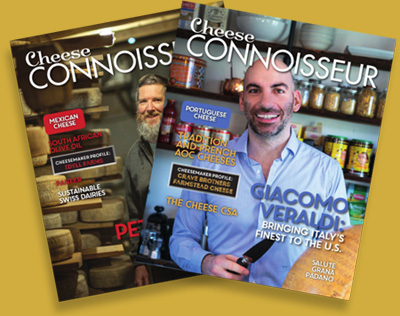The dairy industry loves to talk about how happy cows make great milk or cheese, and the vegan community likes to make people believe that dairy cows are abused and unhappy slaves to modern agriculture. What is the truth?
The most important part of cheesemaking is starting off with fresh, high quality milk. Poor quality milk makes for lousy cheese, often with rancid notes and bitterness. How does great milk happen? I can assure you it is not by accident.
The scientific measurement is the number of somatic cells per unit of milk. Somatic cells are white blood cells. By the way, this is not pus. There is no pus in milk—something animal rights groups often say.
Cheesemakers are going for milk with very low somatic cell counts. High counts can be from an infection, the most common of which is mastitis, a mammary gland infection. Other causes include injury, stress, poor living conditions, a nutritionally weak diet and unclean or limited water. It can also be caused by animals that live in crowded conditions where they get injured from their herd mates.
Milk with high somatic cell counts works against cheesemakers and dairymen, because the cows produce less milk. Cheesemakers are hurt because there is a degradation of milk fat and proteins, which means a lower yield of cheese. There will be increased water content and the cheese will often have decreased firmness and elasticity. Cheese that should be firm may be mushy and watery. And there may be pathogenic bacteria present. Of course, this is all dependent on how bad the milk is, with higher somatic cell counts presenting greater problems.
There is always talk about antibiotics. Because of the use of bacteria, yeasts and molds to make cheese, the milk cannot have any antibiotics in it. Milk with antibiotics will not make cheese. So all cheese is antibiotic-free.
Cheesemakers and dairy farmers work hard to make sure their cows are content with enough space to move, excellent diets and ample fresh, clean water. Many dairies add additional comforts like back scratchers, piped in music, clean bedding and nutritional supplements. Many use new technologies to let the cows get milked when they want to—often multiple times a day. In cold, harsh climates, temperature-controlled barns are used.
In other words, happy cows make happy cheese. A lot goes into making great cheese, and it all starts with the cows.



